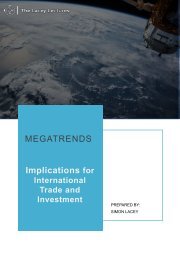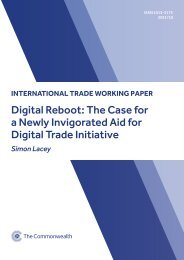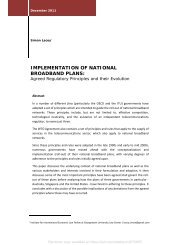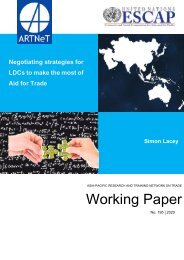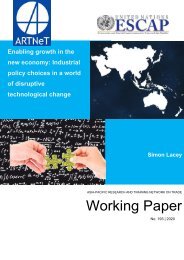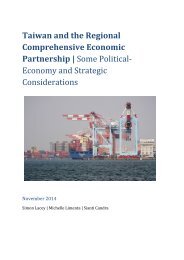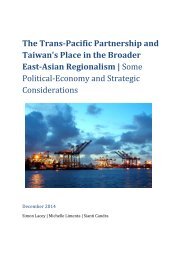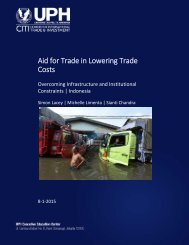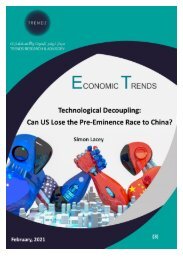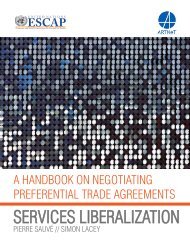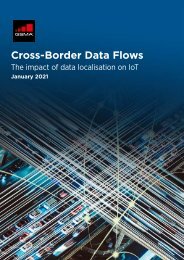White Paper Trade Rules and the Digital Economy Key Points and Findings
This synopsis document summarizes and articulates the key points and findings from the much longer 2017 White Paper on Trade Rules for the Digital Economy.
This synopsis document summarizes and articulates the key points and findings from the much longer 2017 White Paper on Trade Rules for the Digital Economy.
- No tags were found...
Create successful ePaper yourself
Turn your PDF publications into a flip-book with our unique Google optimized e-Paper software.
Chapter Six | <strong>Findings</strong> <strong>and</strong> Conclusions<br />
8 National security is vital but cannot be used to justify every policy intervention<br />
We live in a world today where both <strong>the</strong> public at large as well as governments have become increasingly<br />
aware of not only <strong>the</strong> benefits of an increasingly connected world, but also <strong>the</strong> risks that increased<br />
interconnectivity brings with it. As such, governments are legitimately starting to take a broader <strong>and</strong><br />
deeper view of what constitutes critical national infrastructure <strong>and</strong> are becoming increasingly vigilant<br />
against potential cybersecurity threats. Be this as it may, we believe that <strong>the</strong> national security exception<br />
cannot be used as a blank check to justify measures that are essentially protectionist in intent <strong>and</strong> nature.<br />
This is a very sensitive topic, <strong>and</strong> we also recognize that it must be treated as such. Equally, it should be<br />
subject to disciples which are agreed <strong>and</strong> reviewable.<br />
9 Regardless of who exercises leadership, <strong>the</strong>se rules ultimately belong in <strong>the</strong> WTO<br />
We view <strong>the</strong> different initiatives to develop new rules in <strong>the</strong> context of various FTAs <strong>and</strong> plurilateral<br />
initiatives as a very positive development that we wish to wholeheartedly support. We also recognize that<br />
a strong <strong>and</strong> effective body of rules governing much of <strong>the</strong> economic activity in <strong>the</strong> digital economy already<br />
exists in <strong>the</strong> form of <strong>the</strong> WTO Agreements. The application of those “analog rules” in today’s digital<br />
economy has been highlighted. Given <strong>the</strong> WTO’s track record in <strong>the</strong> negotiation <strong>and</strong> enforcement of <strong>the</strong>se<br />
rules, we view it as essential in <strong>the</strong> medium to long term that any new or updated rules that are enacted<br />
to govern <strong>the</strong> digital economy be brought under <strong>the</strong> auspices of <strong>the</strong> WTO <strong>and</strong> particularly its overriding<br />
principle of most‐favored nation <strong>and</strong> its dispute settlement procedures.<br />
22




